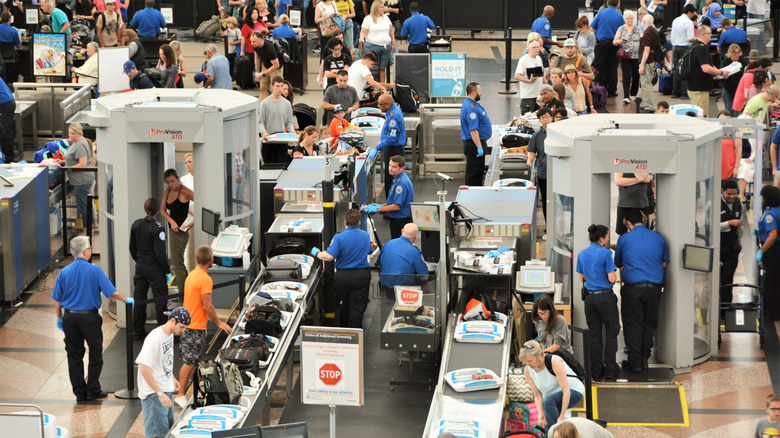How The Impending Potential Government Shutdown Can Affect Your Travel Plans
With policymakers unable to come to an agreement on critical funding issues like healthcare and immigration, there is a high possibility of a government shutdown, and people all around the United States will feel the impact. For those who work in the travel industry or simply have flight plans that include America, there could be complications.
While many commercial flights, long distance trains, and cruise ships will continue taking travelers to their destinations, you should be on the lookout for delays and even cancellations, especially with flights. Additionally, popular destinations (like museums and zoos) that receive federal funding would likely close until the shutdown is over. Combined with all the Trump administration funding cuts that have changed America's beloved national parks, vacations to these destinations might end up cancelled altogether, as the parks would be closed until the shutdown ends.
In a letter to Congress about the possibility of a government shutdown, the U.S. Travel Association stated that it would likely cost the American travel economy around $1 billion every week the shutdown lasts. While it will still be possible to travel within and out of the United States under these conditions, more than half of Americans surveyed by Ipsos (a market research company cited in the letter) would cancel their flights during the shutdown. According to the U.S. Travel Association, "These harms ripple far beyond airports and parks, threatening jobs, small businesses, and economic growth in every state."
How air travel can be impacted by a government shutdown
While the government shutdown poses serious potential consequences for the travel industry, travelers would likely first feel the effects at the airport. In the event of a shutdown, hundreds of thousands of federal employees across agencies would be temporarily sent on unpaid leave or asked to work without pay. That includes airport employees, TSA officers, customs officers, and air traffic controllers.
If you're someone who usually zips through TSA at the airport, you're going to be in for disappointment if there's a shutdown. Fewer TSA agents means fewer lines to choose from at airport security — so expect to wait a lot longer. The longer the shutdown lasts, the worse this problem could become. While many would be encouraged to come into work and do their jobs without being paid, the longer a shutdown goes on, the more likely it is that people would be unwilling or unable to do so. During a 2018-2019 shutdown, TSA officers called out of work far more than usual, as they lost the ability to financially support themselves despite coming in to work.
The same was true of air traffic controllers, a situation which caused serious flight delays. Worse, the United States already has a dangerous lack of air traffic controllers. It takes a lot to become an air traffic control employee, with more than a third of potential new hires not finishing training. This leaves the available air traffic controllers dangerously overworked, exhausted, and demoralized. Despite training for new air traffic controllers pausing during the 2018-2019 government shutdown, the Department of Transportation's current plan would keep training active through a new shutdown. Existing air traffic controllers would be asked to continue working without compensation.

